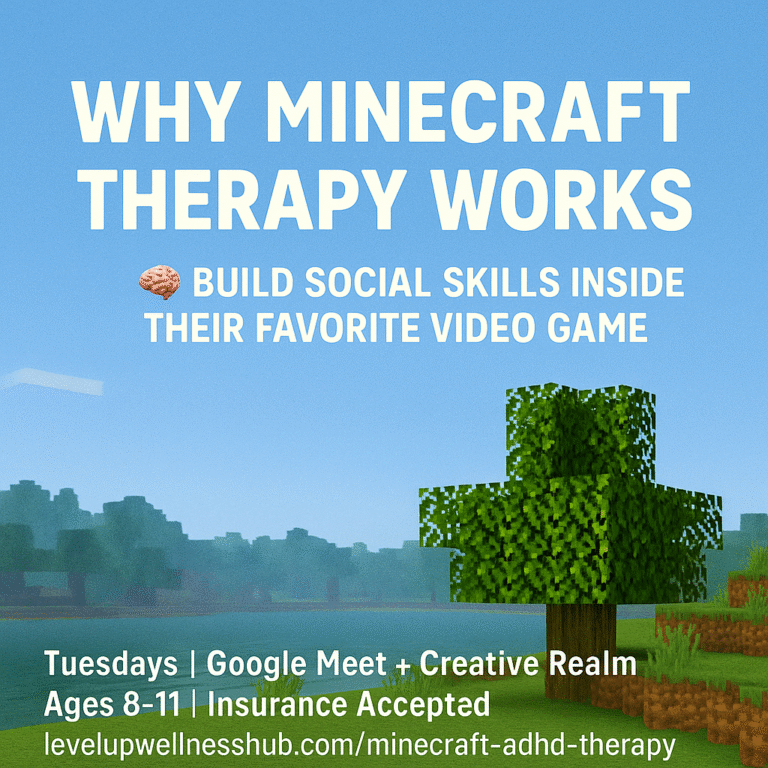Understanding Sensory Processing Challenges in ADHD: Signs, Struggles, and Solutions
If you or someone you love has ADHD, you may have noticed sensitivity to certain textures, sounds, or even crowds. These sensitivities could be signs of sensory processing challenges, which often go hand-in-hand with ADHD. As an ADHD Specialist, Licensed Professional Counselor, and Special Education teacher, I frequently see how sensory sensitivities can compound feelings of overwhelm, decision paralysis, and perfectionism. Understanding these sensory challenges is the first step toward finding effective, sustainable solutions.
What Are Sensory Processing Challenges?
Sensory processing refers to how our brain interprets and responds to sensory information like touch, sound, and movement. For some individuals, sensory input can feel too intense or not intense enough, making everyday environments feel overwhelming or underwhelming. These challenges are particularly common in people with ADHD, as their brains are wired differently to process information, often amplifying sensory input or making it harder to filter distractions.
Signs of sensory processing challenges might include:
- Hypersensitivity: Feeling overwhelmed by loud noises, bright lights, strong smells, or certain textures.
- Hyposensitivity: Seeking out intense sensory experiences, like crashing into things or craving constant movement.
- Motor Challenges: Difficulty with tasks requiring coordination, such as tying shoelaces or handwriting.
- Emotional Responses: Meltdowns, irritability, or extreme frustration in response to sensory overload.
How Sensory Challenges Impact ADHD
For neurodivergent individuals, sensory processing difficulties can fuel struggles with focus, organization, and emotional regulation. Overwhelming sensory environments might lead to procrastination, perfectionism, or even avoidance—common behaviors in ADHD. When sensory overload combines with ADHD tendencies like time blindness or impulsivity, the result can feel chaotic and unmanageable.
These challenges can also deepen feelings of guilt or shame, particularly for those who believe they should “push through” or handle environments that others seem to manage easily. This can lead to cycles of burnout and self-doubt.
How Solution-Focused Therapy Can Help
In my 30-minute solution-focused therapy sessions, I help clients address the root causes of their challenges, including sensory processing struggles. Together, we’ll:
- Understand Triggers: Identify sensory sensitivities or needs that disrupt daily life.
- Hack the Brain: Reframe fight-or-flight responses to sensory input, often mistaken for lack of motivation or procrastination.
- Build Sustainable Systems: Create practical strategies to manage sensory overload, such as creating low-stimulation zones or using sensory tools.
- Simplify Tasks: Break down overwhelming activities into manageable steps, removing the pressure of perfectionism.
Steps You Can Take Today
If you or your child struggles with sensory sensitivities, here are some starting points:
- Track Patterns: Keep a journal of environments or stimuli that trigger sensory discomfort or overwhelm.
- Experiment with Tools: Try noise-canceling headphones, fidget tools, or weighted blankets to help regulate sensory input.
- Set Boundaries: Create clear expectations for sensory-friendly spaces at home, school, or work.
- Seek Professional Guidance: Therapy tailored to ADHD and sensory challenges can provide individualized strategies for thriving in a sensory world.
Finding Your Balance
Sensory processing challenges are just one piece of the ADHD puzzle, but with the right tools and support, they don’t have to derail your daily life. My brief, focused therapy sessions are designed to help neurodivergent individuals simplify their lives, adjust their environments, and overcome overwhelm. Together, we’ll create systems that work for you, so you can stop surviving and start thriving.
To learn more about how solution-focused therapy can help you or your child manage ADHD and sensory challenges, visit www.levelupwellnesshub.com. Let’s work together to create sustainable solutions for a calmer, more empowered life.

